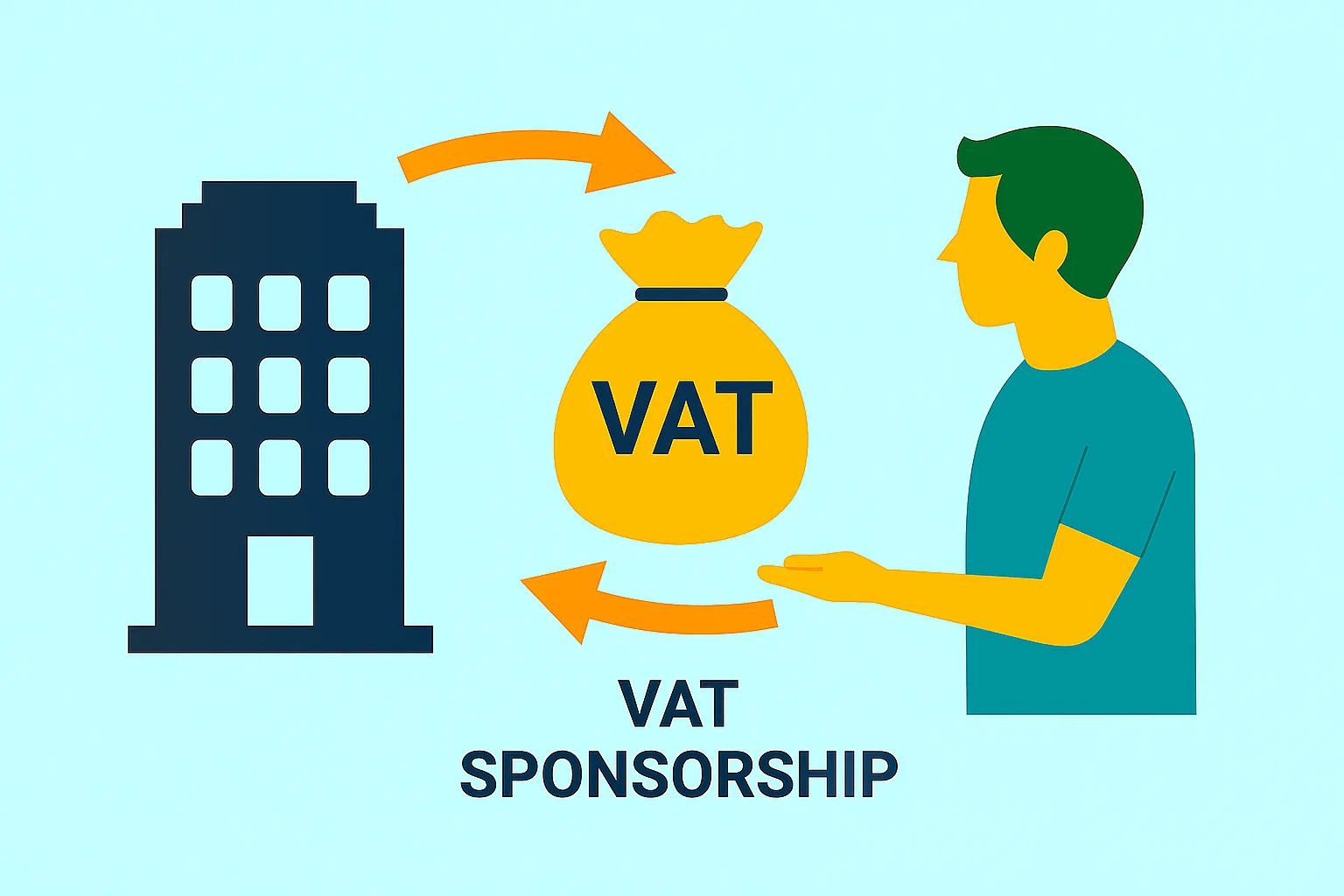VAT on Sponsorship: How It Works for Clubs and Organizations

What is VAT on sponsorship?
When businesses support a club, association, or event in exchange for visibility — such as a logo on a field board, a website mention, or branded equipment — this is not a donation, it’s sponsorship.
In most countries, this kind of transaction counts as a taxable service. The sponsoring company receives advertising or promotional exposure, and the organization providing it may have to charge VAT or local equivalent taxes on the sponsorship amount.
In other words: if you give something valuable in return for money, it’s usually not a gift — it’s a taxable sponsorship.
When does sponsorship become taxable?
The general rule is simple: if there’s a commercial benefit or visibility for the sponsor, the transaction is subject to VAT or local sales tax.
Examples:
-
A company pays $2,000 for its logo on a stadium board → taxable sponsorship.
-
A business provides uniforms or materials in exchange for exposure → in-kind sponsorship → taxable.
-
A donor gives $500 with no mention or publicity → pure donation → not taxable.
Each country applies its own definitions and thresholds. In the European Union, this falls under VAT rules. In the United States, sales tax or state tax may apply depending on the state. In Brazil, sponsorship can trigger ISS or ICMS obligations.
Tax exemptions and country-specific rules
In some cases, nonprofit or community organizations may qualify for tax exemptions if their activities are charitable, cultural, or purely educational.
However, these exemptions vary by country and by the organization’s main purpose. For example:
-
In the Netherlands, sports clubs may be exempt from VAT for certain core sports activities, but sponsorship income is generally taxable.
-
In the UK, charities may qualify for VAT exemption if the sponsorship has no commercial element.
-
In the US, 501(c)(3) organizations may avoid tax on genuine donations but must declare sponsorship income if it includes advertising benefits.
👉 Always check the official guidance from your national tax authority (e.g., the IRS, HMRC, Receita Federal, or Belastingdienst) to confirm how sponsorship income is treated in your country.
Why you should still include tax in your invoices
Even if your club or association qualifies for an exemption, it’s smart to manage taxes properly from the start. Tax thresholds can change, and international sponsors may require formal invoices showing tax details for compliance reasons.
When you use Sponsorvista, you can:
-
Add VAT, sales tax, or local tax automatically to every sponsorship invoice.
-
Apply country-specific percentages.
-
Generate professional proposals and invoices that meet your local tax standards.
Whether you’re in the Netherlands, the US, or Brazil, Sponsorvista helps you stay compliant while keeping your sponsor management simple.
In-kind sponsorship and valuation
When a sponsor provides products or services instead of money — for example printing banners or providing catering — this counts as in-kind sponsorship.
You should record the fair market value of what’s provided, as this may also be taxable in some countries.
Sponsorvista lets you assign a value to in-kind deals, include tax if needed, and keep your reporting transparent and consistent.
Practical tips for handling VAT or local taxes on sponsorships
-
Document every agreement. Clearly describe what the sponsor receives.
-
Determine the fair value of in-kind contributions.
-
Check your country’s thresholds for small or nonprofit organizations.
-
Add VAT or local tax automatically in Sponsorvista to avoid manual errors.
-
Review your setup yearly as tax rules and exemption limits can change.
Conclusion
VAT on sponsorship (or its local equivalent) is something every club, association, and nonprofit should understand. If sponsors receive visibility or promotion in return for their contribution, tax often applies — even for smaller organizations.
With Sponsorvista, you can easily apply the right VAT or tax percentage to every proposal and invoice, no matter where you operate.
You focus on building sponsor relationships — Sponsorvista handles the admin.




